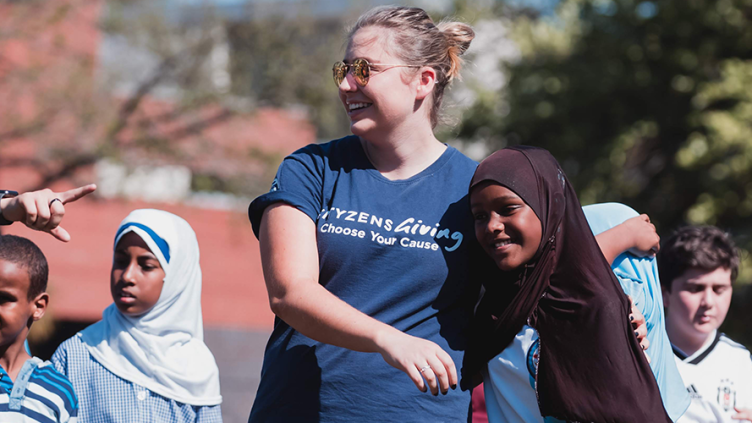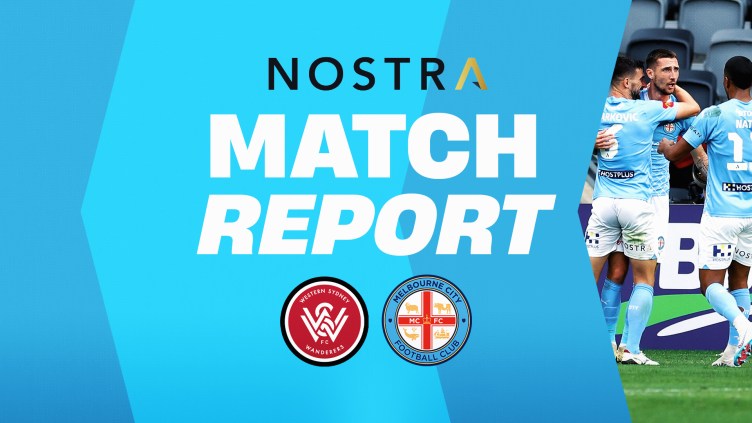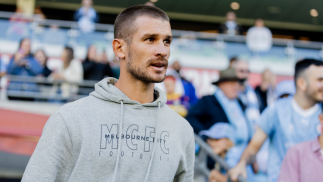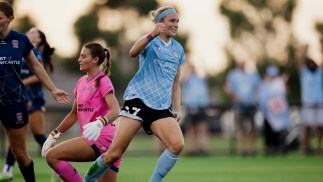Since joining City in the Community’s Young Leader program four years ago, inspiring mentor Gabriella Collins has played a significant role at our Club and in our local community.
Like most kids, Gabby grew up with a passion for sport and the outdoors. A promising basketballer, as a youngster she represented Victoria before three shoulder reconstructions forced her to step aside from the sport she loved.
Leadership has always been one of Gabby’s strong suits, in primary school she took up several leadership opportunities which led to her becoming school captain before maintaining those leadership roles in various different sporting teams throughout secondary school.
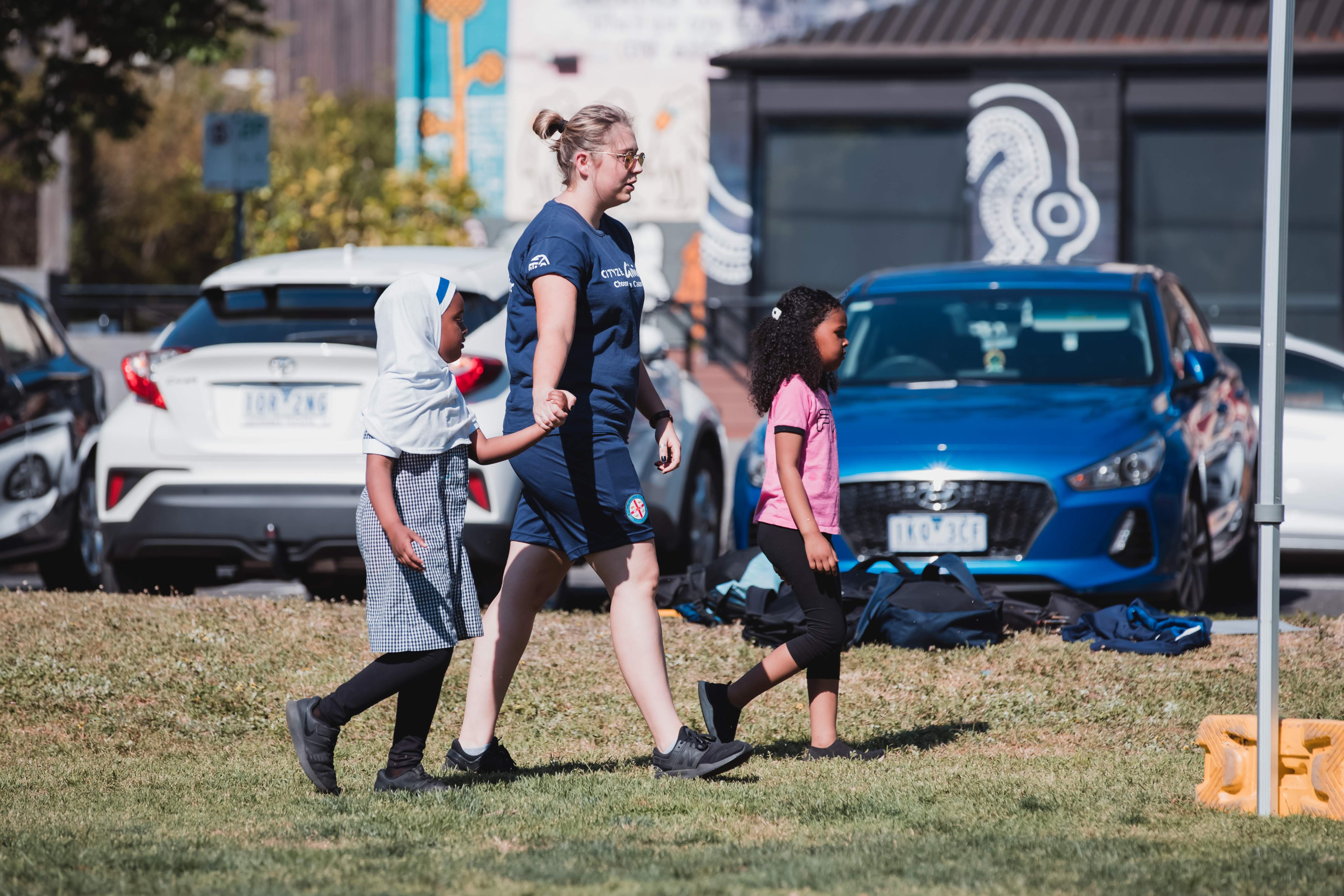
A workplace learning opportunity while studying at SEDA first introduced Gabby to City in the Community and the wonderful work our team do with young children who need our support most. From there, Gabby has become one of our most valued team members and an inspiring young leader for children throughout our local community.
“Being a young leader has changed my life massively, I never thought that I would be here,” Gabby said. “The academic side of school was never my strong suit – I was always out on the basketball court or playing music – I never thought I would end up at SEDA, so I’m very grateful for my move there and becoming involved in the Young Leaders program.”
“I couldn’t ever have imagined being in this position, having the opportunity to go to Manchester and knowing people from right across the world through our Young Leader programs – I find it so crazy and surreal and I’m still in awe every day.”
Gabby has played a significant role in encouraging young females to get involved in City in the Community’s local programs. Not only has she helped them grow in confidence and provided them with a safe environment to do so, but she has also been a mentor for many young children.
“For me, I feel that my biggest responsibility is being a mentor to young kids, and I don’t take that responsibility lightly,” she reflected. “Having seen a lot of the different backgrounds that these children come from and some of their home situations, I feel as though that is my most important role – to not only have a friendship with these kids but to also be able to use that to help them if they want to and being able to be that approachable person if it comes to that and they need to talk to me about something.”
“Every week I see these kids grow more and more, it often starts from these shy little kids who don’t want to talk to you and run off laughing and then each week they grow and grow and don’t want to leave your side.
“It’s so important to be approachable, the girls would often stand on the sidelines and watch the boys play so one day I went over and asked them if they wanted to join in and a lot of them seemed hesitant at the beginning so I just spoke to them about their concerns, in which they didn’t feel entirely confident playing with the boys so we accommodated for them and ran their own session with female coaches which they love.”
Being a young leader and building relationships with several children who are doing it tough can make the role very challenging at times.
“The most difficult aspect of being a young leader is seeing the hardships that these kids go through,” Gabby said. “For example, I had a really close connection with one of the girls there and seeing her week in and week out and then she didn’t return again – so dealing with that unknown if she’s okay – knowing that these kids don’t always come from the best situations and although we do all that we can when we are there, we’re not always there to help them out if needed so that’s the hardest aspect.”
Gabby’s mentoring role extends beyond our community clinics. In 2019, Young Leaders were faced with the challenge of developing their own social impact football programs. With five community grants up for grabs, the first was awarded to Gabby and her ‘DARE to fight mental health’ program.
“I was lucky enough to run a program in honour of one of my good friends Dane, he sadly took his own life at the beginning of last year,” she said. “It was really important for me to make an impact where I could to something that’s very close to me when given the opportunity to do so by Melbourne City.”
“I think It’s something that’s really important for young kids to identify. It’s really important that kids know how to deal with their mental health – so having coping mechanics and that’s where my program came in,” she added.
“I made it for primary schools, we spoke more about the importance of communication with each other, just talking about what’s going on in your life and what’s going on in your head. It’s just about speaking about what you’re going through and knowing that you’re not alone.
“The program was mainly about running activities through football where children had to talk to each other. For example, one week we played blind soccer where the children would work in pairs and rely on their partner to tell them where they are going – it was really about encouraging communication and connecting with others in your class.”
